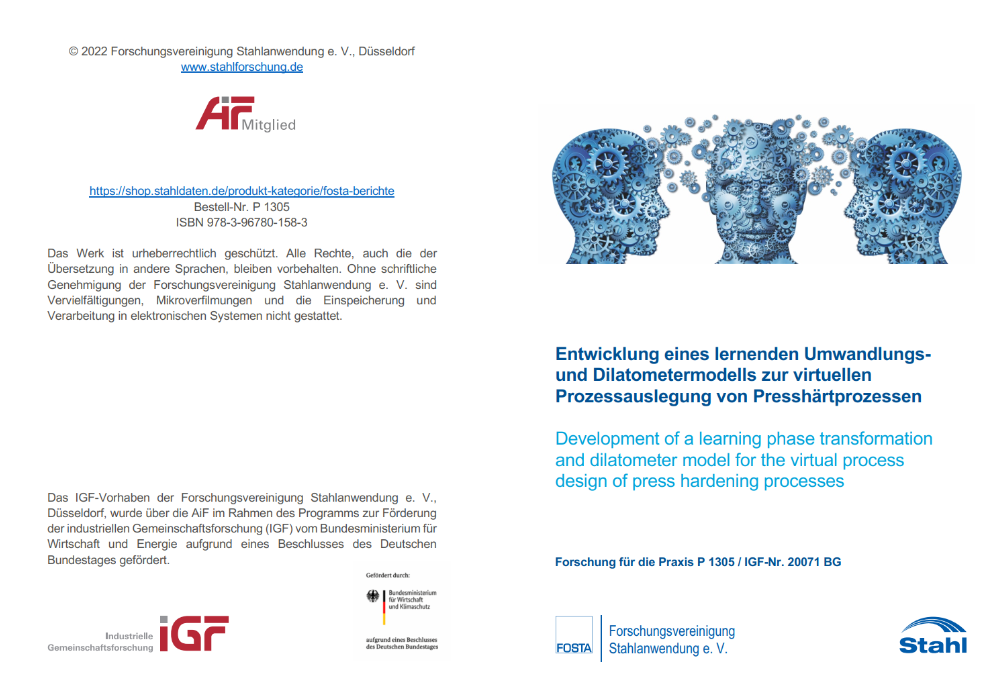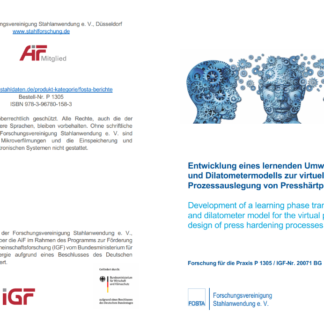Description
P 1305 – Development of a learning phase transformation and dilatometer model for the virtual process design of press hardening processes
Hot stamping of ultra-high-strength steels is a well-established process for manufacturing safety-relevant car body parts such as b-pillars or front bumpers. Besides the conventional process route, there are additional variants that aim to manufacture parts with tailored properties. All these processes have in common, that the mechanical properties are mainly influenced by the phase transformations of the sheet material during the processing.
Therefore, a suitable process design of conventional and so-called partial hot stamping processes requires fundamental knowledge about the underlying phase transformation kinetics. As a result, most of the time, it is necessary to conduct extensive and timeconsuming experimental investigations, for example with a deformation dilatometer.
Thus, a physically-based model will be developed in the framework of this research project to reduce the experimental effort required for process design. Hence, a large database was set up. In this context, both process routes of continuous cooling with variable quenching rate and isothermal holding at different temperatures were investigated. The database includes the transformation kinetics as well as the resulting mechanical properties of the steel alloy 22MnB5. On basis of these experimental results, an existing material model was extended by parameterizing various material variables. Moreover, a learning function was developed with the help of an artificial neural network. It enables the iterative experimental design to reduce the effort for calibrating the extended material model for new alloys. In combination with a graphical user interface, the parameterized material model and the learning function make the virtual dilatometer. With alternative but industrially relevant process routes, the transferability of the virtual dilatometers’ functionality was shown. Moreover, through manufacturing a demonstrator geometry, it was proven, that the extended material model is capable of predicting the mechanical properties of partially hot stamped parts with good accuracy.
Especially for KMU, the stand-alone tool offers a good possibility to extend their product portfolio and to guarantee their competitiveness, since the experimental effort, as well as potential financial obstacles, are reduced.
All research reports in german language only!
Published in:
March 2022
Authors:
Dr.-Ing. J. Buhl, M.Sc. T. Hart-Rawung, Prof. Dr.-Ing. habil. M. Bambach, M.Sc. A. Horn, Prof. Dr.-Ing. habil. M. Merklein


